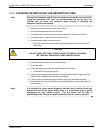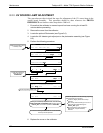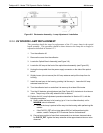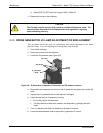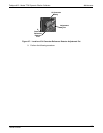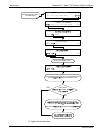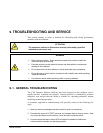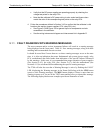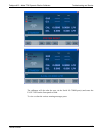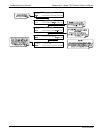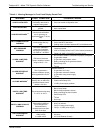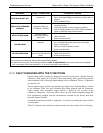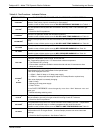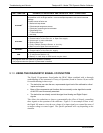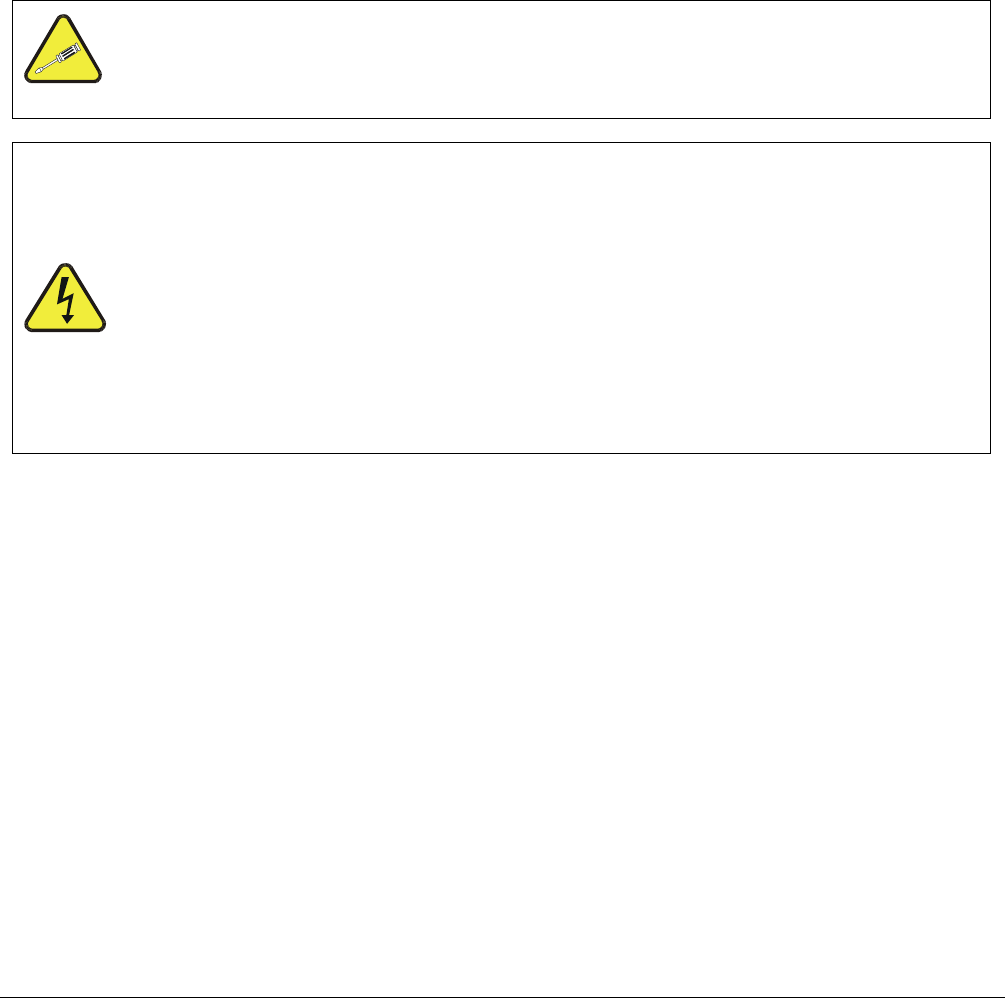
239
9. TROUBLESHOOTING AND SERVICE
This section contains a variety of methods for identifying and solving performance
problems with the calibrator.
ATTENTION
The operations outlined in this section must be performed by qualified
maintenance personnel only.
WARNING
Risk of electrical shock. Some operations need to be carried out with the
instrument open and running.
Exercise caution to avoid electrical shocks and electrostatic or mechanical
damage to the calibrator.
Do not drop tools into the calibrator or leave those after your procedures.
Do not shorten or touch electric connections with metallic tools while operating
inside the calibrator.
Use common sense when operating inside a running calibrator.
9.1. GENERAL TROUBLESHOOTING
The T700 Dynamic Dilution Calibrator has been designed so that problems can be
rapidly detected, evaluated and repaired. During operation, it continuously performs
diagnostic tests and provides the ability to evaluate its operating parameters without
disturbing monitoring operations.
A systematic approach to troubleshooting will generally consist of the following five
steps:
1. Note any warning messages and take corrective action as necessary.
2. Examine the values of all TEST functions and compare them to factory values. Note
any major deviations from the factory values and take corrective action.
3. Use the internal electronic status LEDs to determine whether the electronic
communication channels are operating properly.
06873B DCN6388



